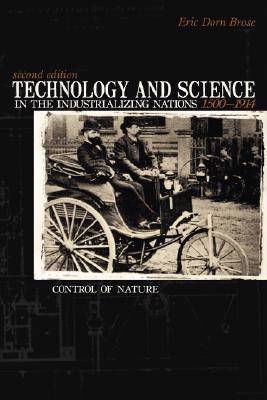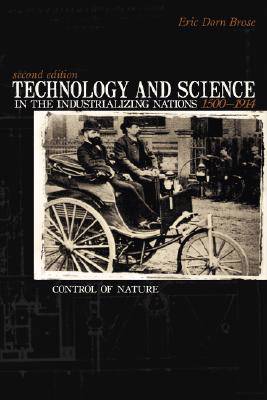
Bedankt voor het vertrouwen het afgelopen jaar! Om jou te bedanken bieden we GRATIS verzending (in België) aan op alles gedurende de hele maand januari.
- Afhalen na 1 uur in een winkel met voorraad
- In januari gratis thuislevering in België
- Ruim aanbod met 7 miljoen producten
Bedankt voor het vertrouwen het afgelopen jaar! Om jou te bedanken bieden we GRATIS verzending (in België) aan op alles gedurende de hele maand januari.
- Afhalen na 1 uur in een winkel met voorraad
- In januari gratis thuislevering in België
- Ruim aanbod met 7 miljoen producten
Zoeken
Technology And Science in the Industrializing Nations 1500-1914
Control Of Nature
Eric Dorn Brose
Paperback
€ 34,95
+ 69 punten
Omschrijving
Weaves a fabric from three histories, the history of technology, the history of science, and the history of economic development leading to the Industrial Revolution. This work provides an overview of the interrelationships among science, technology, and society in the early modern and modern periods, and the impact of each upon the other.
Specificaties
Betrokkenen
- Auteur(s):
- Uitgeverij:
Inhoud
- Aantal bladzijden:
- 133
Eigenschappen
- Productcode (EAN):
- 9781591023678
- Verschijningsdatum:
- 5/12/2005
- Uitvoering:
- Paperback

Alleen bij Standaard Boekhandel
+ 69 punten op je klantenkaart van Standaard Boekhandel
Beoordelingen
We publiceren alleen reviews die voldoen aan de voorwaarden voor reviews. Bekijk onze voorwaarden voor reviews.









